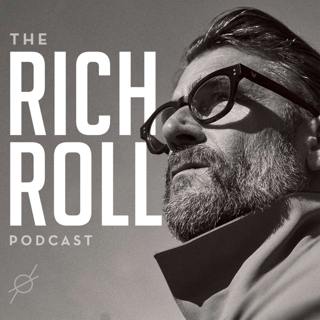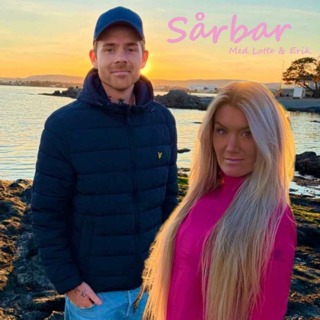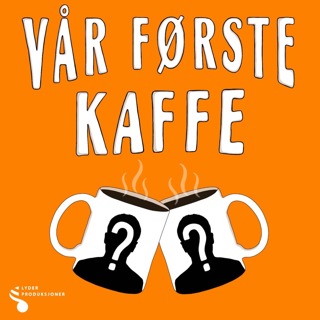
Mastering The Microbiome
Our bodies are comprised of about ten trillion cells. But only half those cells are human. The remainder comprise our microbiome—a vast and complex ecosystem of bacteria, viruses, and fungi that live in or on our bodies. Only now is science beginning to understand the profound impact of these microbes on human health. We choose to believe that we are fully sentient and self-governing, wholly responsible for our health, moods and decisions. But the truth is far different. In fact, to a large extent, our emotional state, propensity for disease, the nature of our cravings, and even some of our decision making can be traced back to the nature of our gut ecology. Most of these microorganisms are symbiotic. Maintaining a healthy culture of the right microorganisms is fundamental to good health. But should the quality of your microbiome go awry, health havoc ensues. To better understand the vital role these microorganisms play in our health and lives, today’s show is a veritable microbiome masterclass courtesy of the gastroenterologists, scientific researchers, and gut experts that have graced the show over the years. After 8+ years and 500+ conversations, I’ve compiled a vast library of bankable, timeless information and advice. As a steward of this archive, I feel a responsibility to convert the best of it into a more helpful, productive, accessible, and practical resource. As an initial step toward this goal, I will be periodically offering curated wisdom focused on a specific theme or subject (as opposed to a guest). This episode is an embryonic experiment in doing just that—the first in what will be an evolving series of deep dives, commencing with this microbiome intensive courtesy of the following collection of past podcast gut health expert guests (all hyperlinked to their respective full episodes): Robynne Chutkan, M.D. Ara Katz and Raja Dhir Zach Bush, M.D. Rhonda Patrick, Ph.D. Will Bulsiewicz, M.D. FULL BLOG & SHOW NOTES: bit.ly/richroll575 YouTube: bit.ly/microbiome575 I sincerely hope you find this experiment helpful and instructive. Peace + Plants, Rich
21 Jan 20211h 22min

Bonnie Tsui On Why We Swim
Unlike other land mammals, humans are not natural-born swimmers. Our evolutionary ancestors learned for survival. Now it’s one of the most popular activities in the world. So why do we swim? What is it about water that seduces us despite its dangers? A lifelong swimmer reared by swimming parents, this week’s guest couldn’t shake this question. What she discovered is far more compelling than you might imagine. Bonnie Tsui (@bonnietsui) is an alumnus of Harvard University, where she did not swim but instead rowed crew—and graduated magna cum laude in English and American Literature and Language. In 2009, her book American Chinatown: A People’s History of Five Neighborhoods won the 2009-2010 Asian/Pacific American Award for Literature and was a San Francisco Chronicle bestseller and Best of 2009 Notable Bay Area Books selection. She has been the recipient of the Lowell Thomas Gold Award for travel journalism and the Jane Rainie Opel Young Alumna Award at Harvard University. In 2017, she was awarded the 2017 Karola Saekel Craib Excellence in Food Journalism Fellowship by the San Francisco Chapter of Les Dames d’Escoffier. She is also the recipient of a 2019 National Press Foundation Fellowship. A frequent contributor to The New York Times and California Sunday magazine, Bonnie’s latest book—and the focus of today’s conversation—is Why We Swim. Propelled by stories of Olympic champions, a Baghdad swim club that meets in Saddam Hussein’s palace pool, modern-day Japanese samurai swimmers, and even an Icelandic fisherman who improbably survives a wintry six-hour swim after a shipwreck, Bonnie dives into the deep, from the chilly San Francisco Bay to the South China Sea, investigating the ancestry and essence of water’s allure. Widely lauded, Why We Swim was named to TIME magazine’s list of 100 Must-Read Books of 2020. It’s also received praise from The New York Times, The San Francisco Chronicle, The Los Angeles Times, NPR, Buzzfeed, Bustle, Booklist, Kirkus, and more. Beautifully written and completely immersive, it definitely ranks among my 2020 favorites—I couldn’t put it down. So let’s talk about it. This conversation is a love letter to swimming—a sport, lifestyle and obsession that Bonnie and I share. It’s a deconstruction of humanity’s relationship with the transformative power of water—an archeological dig that unearths mankind’s historic and fraught yet undeniably alluring connection with the sea. It’s about swimming as a means of survival. It’s about swimming as a conduit for well-being, competition, and community. It’s about the unique power of water—when combined with breath—to produce that elusive state called flow. But underneath it all, this is a conversation about why to be a swimmer is to be a seeker. FULL BLOG & SHOW NOTES: bit.ly/richroll574 YouTube: bit.ly/bonnietsui574 It was an absolute delight to share space and passion with a woman who hopes, as Oliver Sacks writes in Water Babies, to “swim till I die.” I concur with that idea. This conversation sheds light on why. Peace + Plants, Rich
18 Jan 20212h 18min

Karamo Brown Is Culture
You can’t grow if you don’t confront that which limits you. So face it. Ask for help. Have the hard conversations. Commit to the work. And I promise, your life will change. I’ve seen it come to pass countless times—in myself and many others. But few have more experience with personal transformation than Karamo Brown—a man who overcame tremendous adversity to enliven the best in others. The ‘culture’ expert on Netflix’s massive hit show Queer Eye, Karamo is a father, former social worker, and psychotherapist who was first introduced to audiences on MTV’s The Real World in 2004. He continued to build their trust as a host on Dr. Drew Live, HuffPost Live, and Access Hollywood Live. Karamo’s self-titled primer on emotional healing, Karamo: My Story Of Embracing Purpose, Healing, is an inspiring must-read for anyone grappling with adversity. In addition, he is the founder of 6in10, an organization that provides mental health support and education to the LGBTQ+ community, and the co-founder of Mantl, a skin-care line for bald men. Today he shares his powerful story, dropping pearls of guidance in the process. This is a conversation about culture beyond art museums and the ballet. It’s about how people feel about themselves and others, how they relate to the world around them, and how their shared labels, burdens, and experiences affect their daily lives in ways both subtle and profound. It’s also about the culture of Karamo. Raised in the South by a Jamaican father and Cuban mother in predominantly white neighborhoods, it’s a story of overcoming personal issues of colorism, physical and emotional abuse. Alcohol and drug addiction. And public infamy. But more than anything, this is a conversation about what holds people back. It’s about the importance of exploring our difficulties. And what’s required to transcend our past, move forward, and ultimately live our best lives. FULL BLOG & SHOW NOTES: bit.ly/richroll573 YouTube: bit.ly/karamobrown573 I adore this man and I love this conversation. Peace + Plants, Rich
11 Jan 20211h 39min

Bryan Fogel: 'The Dissident' Filmmaker On The Global Surveillance State
Growing surveillance states. Tech intrusions on privacy. Cyber warfare. International dissent. Assassination. In October 2018, beloved Washington Post journalist and Saudi citizen Jamal Khashoggi was brutally murdered and dismembered upon entering his country’s consulate in Istanbul. The perpetrator: the Saudi government. The reason: speaking truth to power. And yet, to this day, the Kingdom has yet to be held accountable for its actions. It’s a story that shocked the world. Filmmaker Bryan Fogel was compelled to better understand just how such an event could occur. What he discovered was truly Orwellian—and far more disturbing than you can possibly imagine. The result of this quest is The Dissident—a candid portrait of Khashoggi and the bone chilling events surrounding his murder that plays more like an international thriller than a documentary. Best known for Icarus—his Oscar winning exposé of Russia’s elaborate state-sponsored Olympic doping program—Bryan’s follow up is incendiary. Expanding on themes related to those explored in Icarus, it’s controversial. Placing himself and those portrayed on screen at great personal risk, it’s courageous. It’s also expertly crafted. Executed with precision. And a film more than deserving of Oscar consideration. Today Bryan takes us behind the scenes of The Dissident in a riveting tell-all conversation about the consequences of absolute power, global economics, citizen activism, and using your voice for change. Tracking Khashoggi’s trajectory from reformist journalist to dissident to target, this is a discussion about the sacrifice of human rights when they transgress the consolidation of economic and political authority. It’s about citizen activism. The rise of cyber warfare. And the weaponization of social media to both promote and commandeer global political narratives. It’s about Mohammad Bin Salman’s unchecked power in Saudi Arabia. And how international financial interests compromise political and economic relations with the Kingdom. Hollywood is not immune. In fact, Bryan is quite frank about how the industry that celebrated Icarus has snubbed The Dissident out of cowardice. Despite unanimous praise for the film after it’s Sundance premiere, every major distributor and streaming service (including Netflix, which released Icarus) declined to acquire the film due to the Kingdom’s influence over the entertainment business. Much like its protagonist, The Dissident was itself nearly dismembered. Nonetheless, the film will be available on-demand on January 8th. Not to be missed, it’s an Oscar-worthy documentary that demands your attention. One of the most important filmmakers of our time, it was an honor to reconvene with Bryan (check out our first conversation if you missed it). Strap in, because this conversation will leave you with more than a few important things to ponder. READ MORE: bit.ly/richroll572 WATCH: bit.ly/btyanfogel572 Peace + Plants, Rich
7 Jan 20212h 55min

Navy SEAL Rich Diviney On The Attributes That Drive Optimal Performance
It’s hard to predict success in the real world. But there’s a reason why some people thrive — even when things get hard. But what exactly is that reason? Today’s guest became obsessed with better understanding what differentiates those who prevail from those who fail. What he discovered would forever change the game. Rich Diviney is a former Navy SEAL Commander who served up 13 overseas deployments over 21 years as an active member and officer of the armed forces’ most elite, secretive group. A group that shall remain unnamed—but one I suspect you might quickly surmise. Throughout his career, Rich was intimately involved in a specialized SEAL selection process, which whittled a group of hundreds of extraordinary SpecOps candidates down to a handful of the most elite performers. Oddly, which candidates washed out and which succeeded was often wildly unpredictable. Some could have all the right skills and still fail. Others more easily dismissible would ironically prove to be top performers. The seemingly objective criteria weren’t telling him what he most needed to know: who would succeed in one of the world’s toughest military assignments? Over time, Rich began to see that beneath obvious skills are hidden drivers of performance,surprising core attributes—including cunning, adaptability, courage, even narcissism—that determine how resilient or perseverant we are, how situationally aware and how conscientious. This epiphany evolved into a SpecOps training program called MindGym—the first of its kind scientifically devised to help elite soldiers perform faster, longer, and better in all environments—especially high-stress ones. In his new book, The Attributes: 25 Hidden Drivers of Optimal Performance, Rich defines and examines these various attributes to explain how we perform as individuals and as part of a team. As you may suspect, his military methodology is equally applicable to our personal and professional lives. Understanding the valence of one’s attributes not only promotes greater self-awareness, it provides a guiding rubric to train the characteristics that predict optimal performance in any situation—from parenting and sports to business and relationships. Diviney currently works as a speaker, facilitator, and consultant with the Chapman & Co. Leadership Institute and Simon Sinek Inc. He’s taught leadership and optimal performance to more than five thousand business, athletic, and military leaders from organizations such as American Airlines, Meijer Inc., the San Francisco 49ers, Pegasystems, Zoom, and Deloitte. Today he breaks it all down. This conversation continues our annual tradition of welcoming the new year with a Navy SEAL—and the bankable life advice you need to embrace 2021 correct. A must-listen for anyone looking for deeper self-understanding, this is an incredibly powerful primer on how your attributes determine life outcomes—and how you can train said disposition to create more optimal performance in all areas of your life. READ MORE: bit.ly/richroll571 WATCH: bit.ly/richdiviney571 I can think of no better conversation to harken in 2021. May it change your personal game. Because the new year is now upon is. And it requires everything we’ve got to give. Peace + Plants, Rich
4 Jan 20212h 31min

Best Of 2020: Part Three: The Rich Roll Podcast
We look skyward for answers. But prophets walk among us. Allow me to indulge this truth with yet more timeless and timely wisdom courtesy of the amazing individuals that grace this third and final installment of my annual yearbook. Once again, it’s been an honor to share my conversations with so many extraordinary people over the course of 2020. Second listens brought new insights—and more reminders that these exchanges continue to both inspire and inform. For long-time listeners, approach this episode as a refresher to launch you into 2021 with renewed vigor. For those new to the podcast, my hope is this anthology will stir you to peruse the back catalog and explore episodes you may have missed. Guests featured in this episode (all hyperlinked to their respective episodes) include: Erin Brockovich Matthew McConaughey Shane Parrish Chris Mosier Hakim Tafari Chris Hauth Doug Evans Kamal Ravikant Mirna Valerio Kevin Smith & Harley Quinn Smith Compiling this auditory yearbook is both a joy and a challenge. I have great fondness for all my guests. I take no comfort in leaving anyone out. Should you find one of your personal favorites missing, I get it—please don’t @ me! The visually inclined can watch it unfold on YouTube. And as always, the podcast streams wild and free on Apple Podcasts and Spotify. Thank you for taking this journey of growth alongside me. Here’s to an extraordinary 2021. Join me, and, as my friend Doug Evans would say, let’s make it the best year ever. Peace + Plants, Rich
31 Des 20201h 56min

Best Of 2020: Part Two: The Rich Roll Podcast
Meaningful conversation matters. Now more than ever. Allow me to indulge this truth by introducing Part II of my annual yearbook—a means to reflect on the past twelve months by revisiting some of the year’s most compelling podcast guests. It’s been an honor to share my conversations with so many extraordinary people over the course of 2020. Second listens brought new insights—and more reminders that these evergreen exchanges continue to both inspire and inform. For long-time listeners, approach this episode as a refresher to launch you into 2021 with renewed vigor. For those new to the podcast, my hope is this anthology will stir you to peruse the back catalog and explore episodes you may have missed. Guests featured in this second of three total anthology episodes (all hyperlinked to their respective episodes) are as follows: Andrew Huberman, PhD Margaret Klein Salamon PhD Will Bulsiewicz, MD Darin Olien Dr. Alan Goldhamer Julie Piatt Chris Burkard Laird Hamilton Blake Mycoskie Caroline Burckle The visually inclined can watch it unfold on YouTube. And as always, the podcast streams wild and free on Apple Podcasts and Spotify. Thank you for taking this journey of growth alongside me. The third and final installment of this series will post on New Year’s Eve day. Here’s to an extraordinary 2021. Join me, and let’s make it the best year ever—together. Peace + Plants, Rich
28 Des 20201h 54min

Best Of 2020: Part One: The Rich Roll Podcast
It’s time to pause. Reflect on the past twelve months. Set new aspirations. And visualize the year to come. I think we can all agree it’s been a challenging year. All the more reason to optimize body, mind and soul to tackle 2021 correctly. In furtherance of that end, allow me to introduce what has become a tradition on the RRP—our annual ‘Best Of’ series wherein we reflect upon the previous 12 months with a 3-part compilation of clips excerpted from a handful of the year’s most compelling guests. Think of it as a refresher course for the avid fans. An anthology or digest for those newer to the podcast. A love letter to my guests. And most importantly, a way of thanking you, the audience, for taking this journey of growth alongside me. Guests featured in this first of three total anthology episodes (all hyperlinked to their respective episodes) are as follows: Chadd Wright Kelly McGonigal, PhD David Sinclair, PhD Rickey Gates Gregg Renfrew Zach Bush, MD Dan Buettner Byron Davis & Phil Allen, Jr. Charles Eisenstein Knox Robinson Compiling this auditory yearbook is both a joy and a challenge. I have great fondness for all my guests. I take no comfort in leaving anyone out. Should you find one of your personal favorites missing, I get it—please don’t @ me! The visually inclined can watch it unfold on YouTube. And as always, the podcast streams wild and free on Apple Podcasts and Spotify. Here’s to an extraordinary 2021. Join me, and let’s make it the best year ever—together. Peace + Plants, Rich Hosted on Acast. See acast.com/privacy for more information.
24 Des 20202h





















